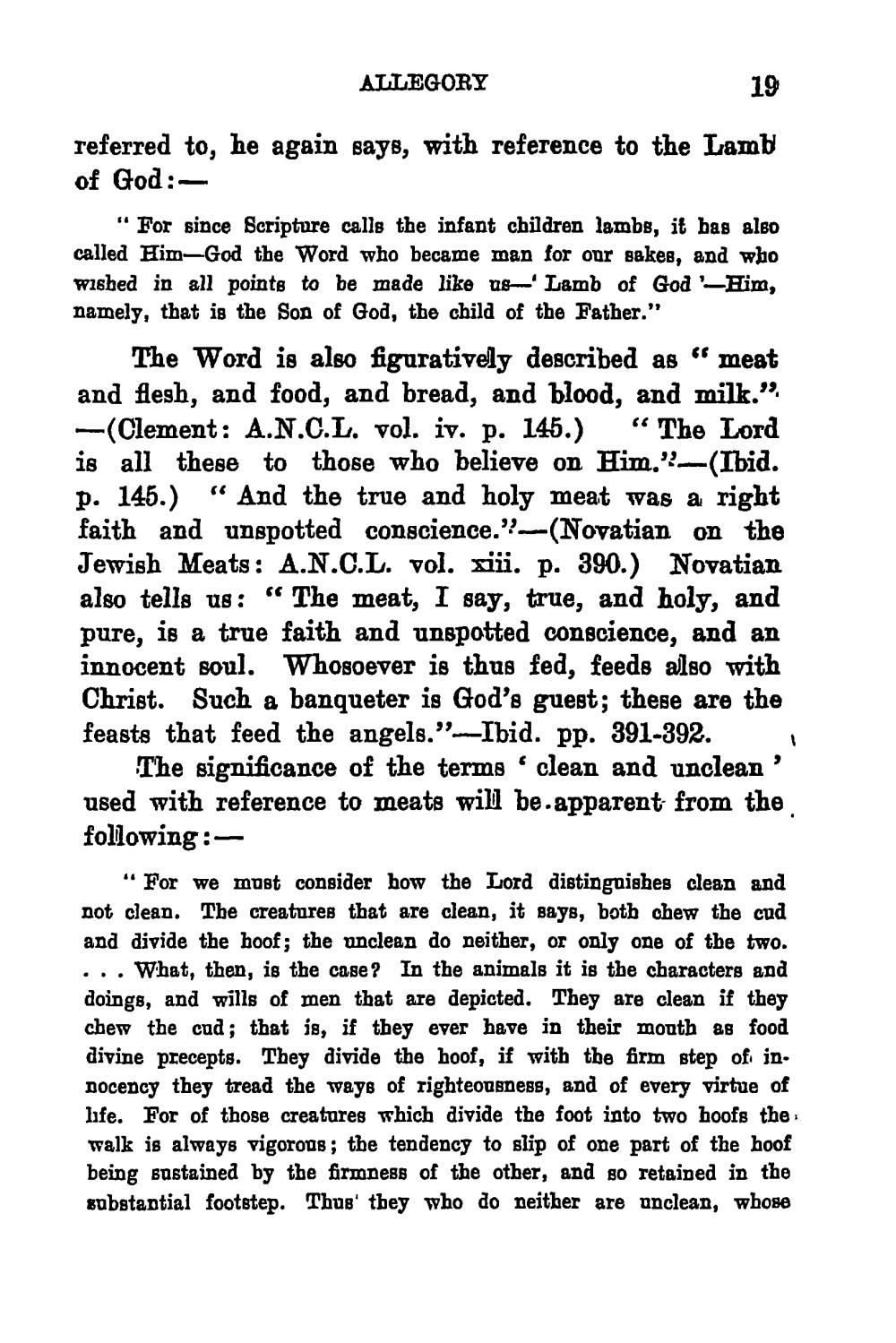________________
ALLEGORY
19
referred to, he again says, with reference to the Lamb of God:
"For since Scripture calls the infant children lambs, it has also called Him God the Word who became man for our sakes, and who wished in all points to be made like usm Lamb of God -Him, namely, that is the Son of God, the child of the Father."
The Word is also figuratively described as “ meat and flesh, and food, and bread, and blood, and milk.", -(Clement: A.N.C.L. vol. iv. p. 145.) “ The Lord is all these to those who believe on Him. ----(Ibid. p. 145.) “ And the true and holy meat was a right faith and unspotted conscience."--(Novatian on the Jewish Meats: A.N.C.L. vol. xii. p. 390.) Novatian also tells us : “ The meat, I say, true, and holy, and pure, is a true faith and unspotted conscience, and an innocent soul. Whosoever is thus fed, feeds also with Christ. Such a banqueter is God's guest; these are the feasts that feed the angels." -Ibid. pp. 391-392.
The significance of the terms clean and unclean' used with reference to meats will be apparent from the following:
“For we must consider how the Lord distinguishes clean and not clean. The creatures that are clean, it says, both chew the cud and divide the hoof; the unclean do neither, or only one of the two. ... What, then, is the case? In the animals it is the characters and doings, and wills of men that are depicted. They are clean if they chew the cud; that is, if they ever have in their mouth 88 food divine precepts. They divide the hoof, if with the firm step of in. Docency they tread the ways of righteousness, and of every virtue of life. For of those creatures which divide the foot into two hoofs the walk is always vigorous; the tendency to slip of one part of the hoof being sustained by the firmness of the other, and so retained in the substantial footstep. Thus' they who do neither are unclean, whose




